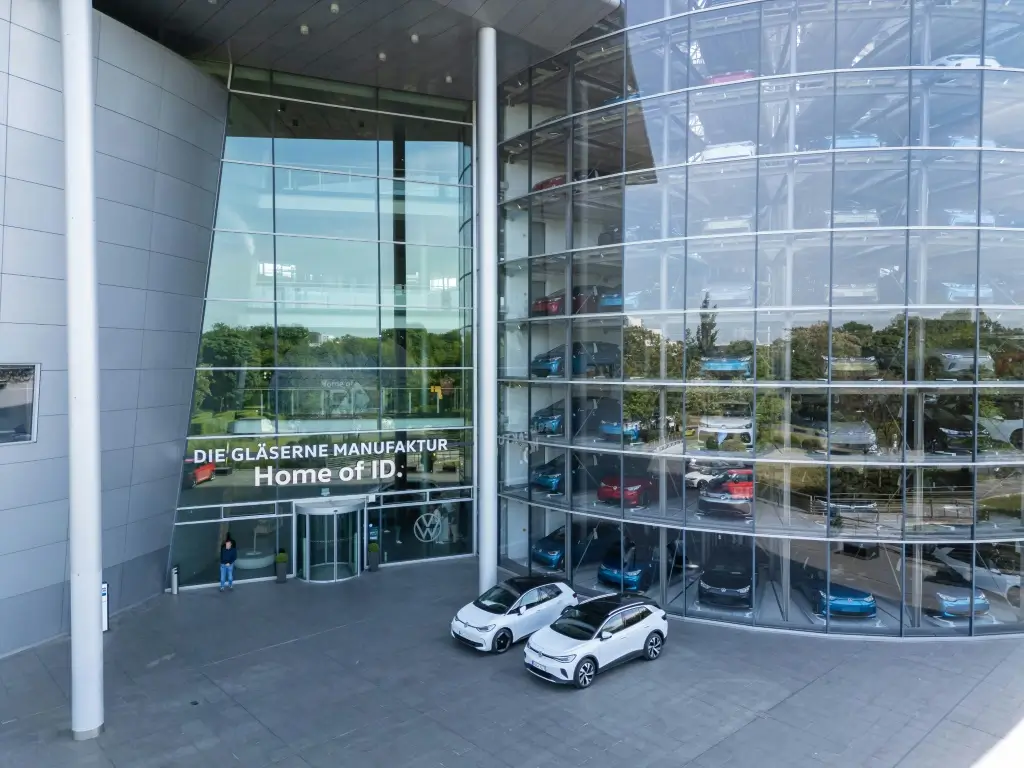
New registrations of electric cars increased significantly in the first half of the year, and German manufacturers benefited particularly strongly from this upswing. Their market share rose from 56 to 64 percent compared to the same period last year, according to the consulting firm EY on Wednesday. In terms of volume, manufacturers increased their sales of electric cars by 56 percent. Volkswagen performed particularly well, although it suffered a setback in the important Chinese market.
The Wolfsburg-based company nearly doubled its electric car sales across its various brands in the first half of the year and increased its market share from 31.7 to 46.4 percent, according to EY. This means that almost every second newly registered electric car in Germany in the first half of the year was from Volkswagen, and the six best-selling electric car models in the first half of the year came from a Volkswagen brand.
The Volkswagen Group announced its own figures for global deliveries. According to them, it sold 465,500 all-electric vehicles in the first half of the year – 47 percent more than in the same period last year. Overall, deliveries increased by 1.3 percent to 4.41 million vehicles by the end of June. "Gains in South America and Europe more than offset the expected declines in China and North America," explained Marco Schubert, member of the extended VW Group Management Board.
US President Donald Trump announced tariffs of 25 percent on cars at the end of March, followed by further import surcharges for trading partners in April. According to VW, sales in North America fell particularly sharply in the second quarter. Nevertheless, deliveries of electric vehicles, especially to the US, continued to show a significant increase of 24 percent in the first half of the year.
The situation is different in China, where VW has been losing massive market share to local manufacturers for some time now. Total exports to the People's Republic fell by a good two percent in the first half of the year. However, exports of electric vehicles plummeted by over 34 percent.
At Mercedes-Benz, US tariffs led to a slump in deliveries to the US in the second quarter. Dealers there are adjusting to the new tariff policy, but demand there is generally "robust," the Stuttgart-based company explained. In fact, deliveries of vehicles to US customers in particular increased, while they declined worldwide, particularly in China.
According to EY, BMW ranks second in Germany for electric cars, with a slightly increased market share of 11.3 percent. Hyundai followed in third place, with its market share increasing to 8.0 percent in the first half of the year. Mercedes was the only German manufacturer to experience a significant decline, selling 32 percent fewer electric cars in Germany than in the same period last year.
Looking at the various brands, Volkswagen, with its eponymous brand, extended its lead to first place with a whopping 80 percent increase in sales. BMW is in second place with an increase of 23 percent. The Munich-based manufacturer's brand displaced Tesla from second place. The US manufacturer slipped to eighth place. Third place is now occupied by the VW brand Skoda, which recorded a whopping increase of 132 percent.
EY, however, doesn't want to call it an e-car boom. "At first glance, things are currently going well in the electric segment," explained EY expert Constantin Gall. . But on the one hand, it is mainly electric company cars that are currently being sold, while private customers still often prefer combustion engines. And secondly, sales figures in the comparative period are very low due to the end of the e-car subsidy at the end of 2023.
"Compared to 2023, when the environmental bonus was still boosting the market, new registrations of electric cars in Germany have increased by just eight percent," Gall emphasized. "For 2025 as a whole, they will probably even be below the 2023 level."